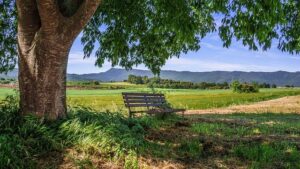Since 2007, the European Commission has spent more than €25 billion of rural development funds on diversifying the EU’s rural economy and improving infrastructure in rural areas. However, according to a special report published today by the European Court of Auditors(ECA), the success of these measures varied significantly across Member States and sectors. For example, weak economic performance and illegitimate private use affect the durability and viability of EU-funded projects in rural tourism. The auditors recommend that the European Commission should share information on the best ways to channel funds more effectively towards viable projects, to mitigate the risk of projects being repurposed for private use, and to harness the potential of large databases.
“The EU has invested significantly in measures to make the rural economy less dependent on agriculture and forestry, to maintain and create jobs, and to improve infrastructure in rural areas,” said Viorel Ștefan, the ECA member who led the audit. “But EU-funded projects in these areas should be durable, and we think that the EU should do more to promote projects which derive longlasting benefits and value for money from EU support.”
 The auditors analysed a variety of projects supported by the European Agricultural Fund for Rural Development (EAFRD), and found that most of them were still operational at the end of the legally required five-year period. This was particularly true for infrastructure projects (such as support to renew villages, or to build or improve roads, water and sewage networks), because infrastructure is generally designed to last for a long time. But one third of diversification projects – projects aimed at promoting non-agricultural activities or supporting new business opportunities – had ceased operations by the time of the audit, even in cases where a very high level of investment had been provided. Investments in tourist accommodation were among the most commonly supported diversification projects.
The auditors analysed a variety of projects supported by the European Agricultural Fund for Rural Development (EAFRD), and found that most of them were still operational at the end of the legally required five-year period. This was particularly true for infrastructure projects (such as support to renew villages, or to build or improve roads, water and sewage networks), because infrastructure is generally designed to last for a long time. But one third of diversification projects – projects aimed at promoting non-agricultural activities or supporting new business opportunities – had ceased operations by the time of the audit, even in cases where a very high level of investment had been provided. Investments in tourist accommodation were among the most commonly supported diversification projects.
The auditors identified significant variations between different sectors and Member States. For instance, in Poland, services to agriculture and forestry projects were less durable than projects in other sectors in 2007-2013. During this period, in several Member States, tourist accommodation had been supported even when it was not economically viable, and in some cases investigations were launched into the private use of buildings financed as tourist accommodation. The auditors revealed other cases where costly tourist accommodation projects had closed after a few years. Some projects cost up to €9 000 in EU subsidies for each month they were operational.
The auditors make a number of recommendations to the Commission in view of the 2023-2027 common agricultural policy (CAP) programming period. In particular, they recommend that the Commission should help disseminate information on the best ways to:
• make sure projects are durable, taking into account the different types of investments it
supports;
• gather evidence that funded activities are still operational;
• set conditions in grant agreements requiring supported projects to be used for their
intended purpose.
Background information
The ECA also analysed EU support for rural infrastructure in special report 25/2015, and issues with the durability of EU-funded cohesion investments were also noted in special report 08/2018 and in special report 06/2011.
Special report 12/2022, “Durability in rural development: most projects remain operational for the period required, but there are opportunities to achieve longer-lasting results”, is available on the ECA website.